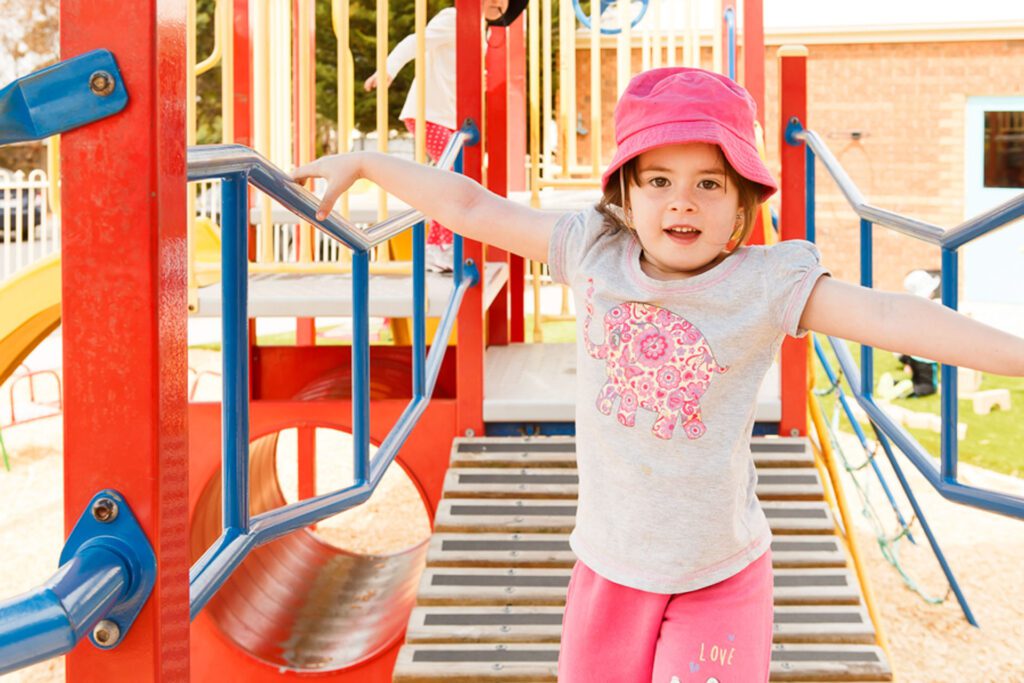
Big Feelings Explained: What’s Normal for Toddlers and Preschoolers?
If you have a toddler or preschooler, big feelings probably show up more often than you’d expect. Tears over small things. Big reactions to being told “not right now”. Emotional moments that seem to come out of nowhere, especially at the end of a long day.
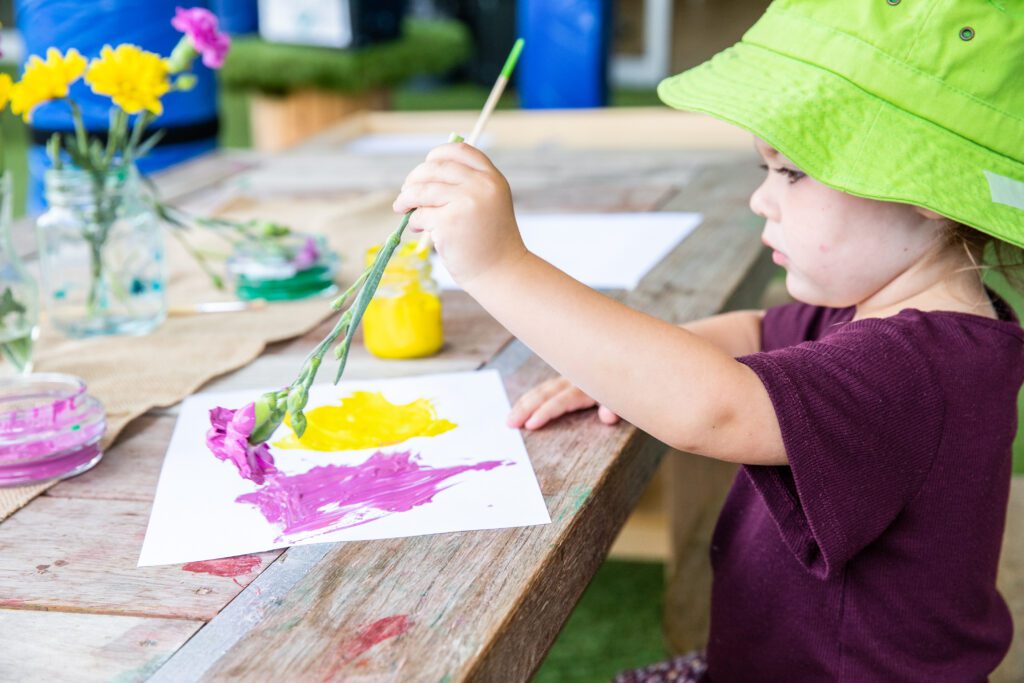
Screens & Little Learners: Simple Ways to Find Balance at Home and Child Care
If you’ve ever turned on a cartoon so you could make dinner, take a phone call, or catch your breath, you’re in good company. For many families, screens are simply part of modern life. What matters most is finding a healthy balance between digital time and real-world play, connection, and rest.
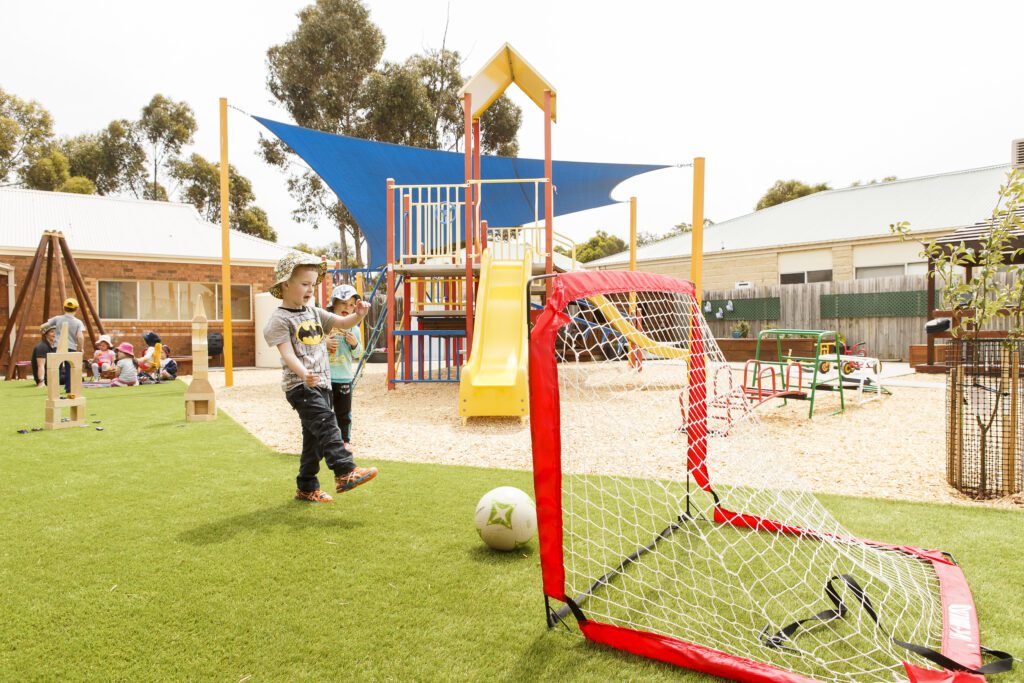
Why Two Years of Kindergarten Could Give Your Child the Best Start to School
The preschool and kindergarten years are such an exciting time in your child’s life. You can almost see them growing into the person they’re becoming, full of stories, questions, and new friendships every week.
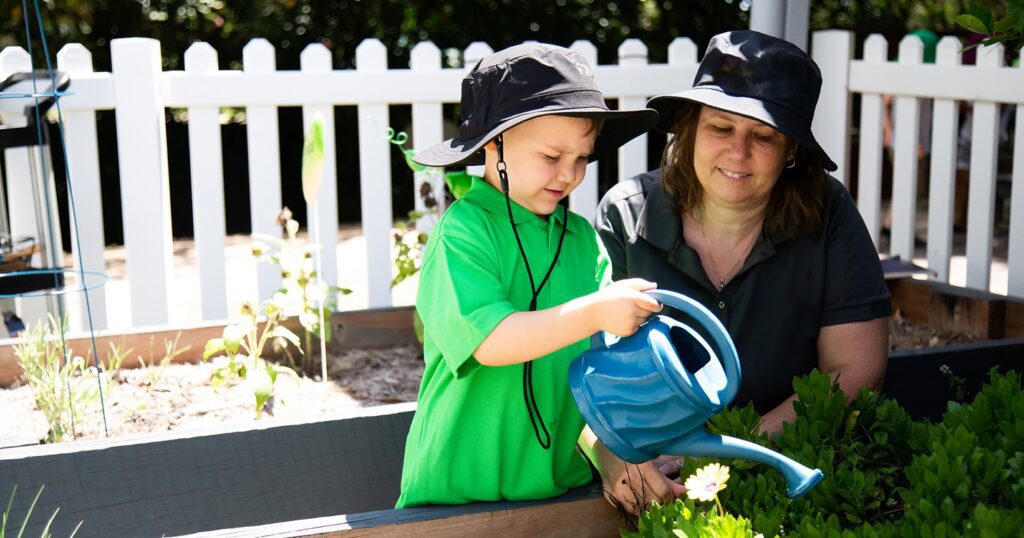
Together We Shine: Appreciating the Little Moments This Early Childhood Educator Day
At Aussie Kindies Early Learning, we know it’s often the little things that mean the most – the proud smile after tying a shoelace, the giggle during story time, or the hug goodbye at the end of the day. These small but powerful moments create a sense of belonging for children and families alike.
This Early Childhood Educator Day (3 September), we’re celebrating the incredible educators who share these moments every day, and the families who walk alongside them, because together, we shine.
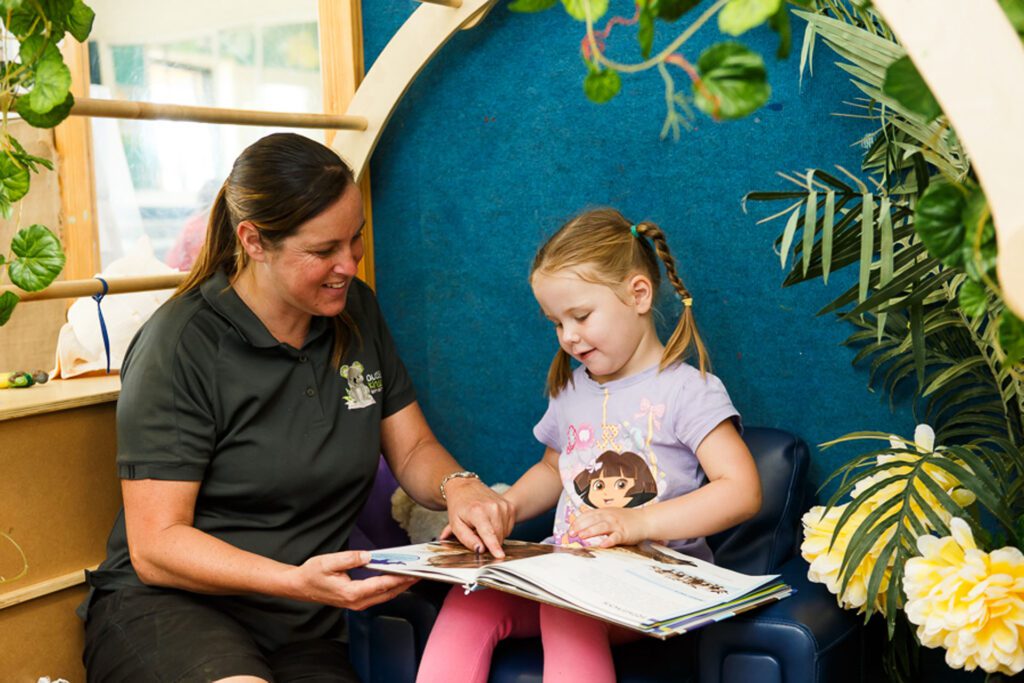
Book Week 2025: A Week of Stories, Smiles, and Imagination
For children, books are more than just words on a page, they’re a doorway to new worlds, big adventures, and characters they’ll remember for years to come.
Book Week 2025 is a chance to open that doorway even wider. It’s a time for celebrating stories, sparking curiosity, and creating moments your child will carry in their heart. And for families with little ones aged 1–5, it’s also an excuse to have a whole lot of fun together!
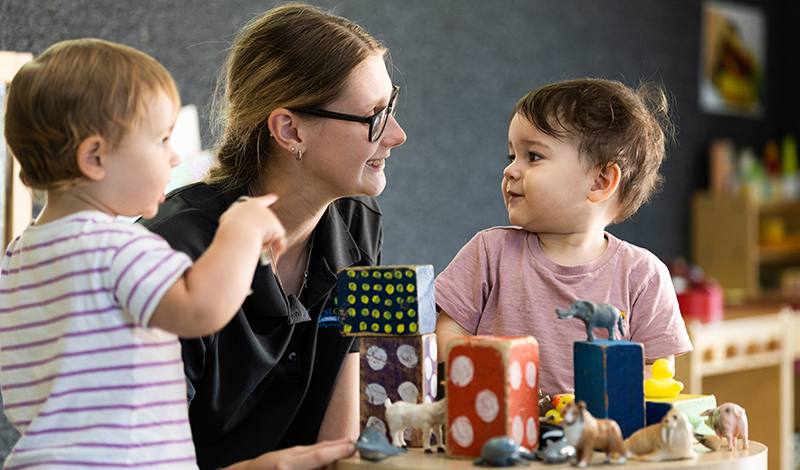
Big Questions, Little Scientists: Celebrating Science Week at Aussie Kindies
Have you ever heard your little one ask, “Why is the sky blue?” or “How do birds fly?” That’s science, and it starts a lot earlier than you might think.
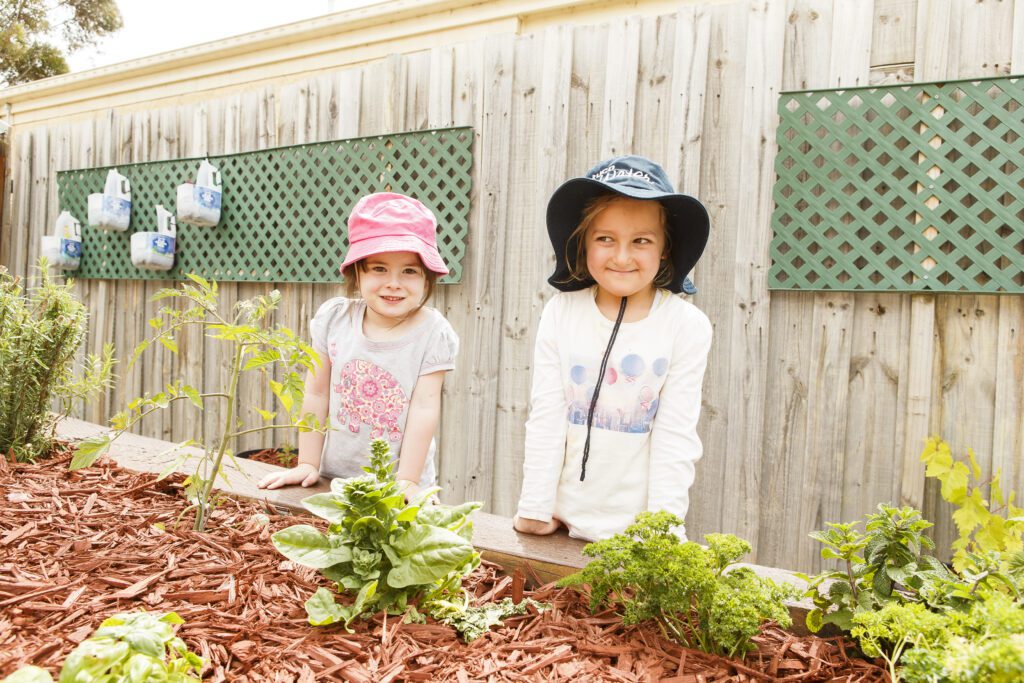
NAIDOC Week for Little Ones: Small Steps, Big Meaning
NAIDOC Week is a celebration of Aboriginal and Torres Strait Islander peoples—their cultures, their achievements, and their deep connection to Country.
The name NAIDOC comes from the National Aboriginal and Islanders Day Observance Committee, and while the history behind it is powerful, what matters most for families with young children is that it’s a time to reflect, celebrate, and build connection.
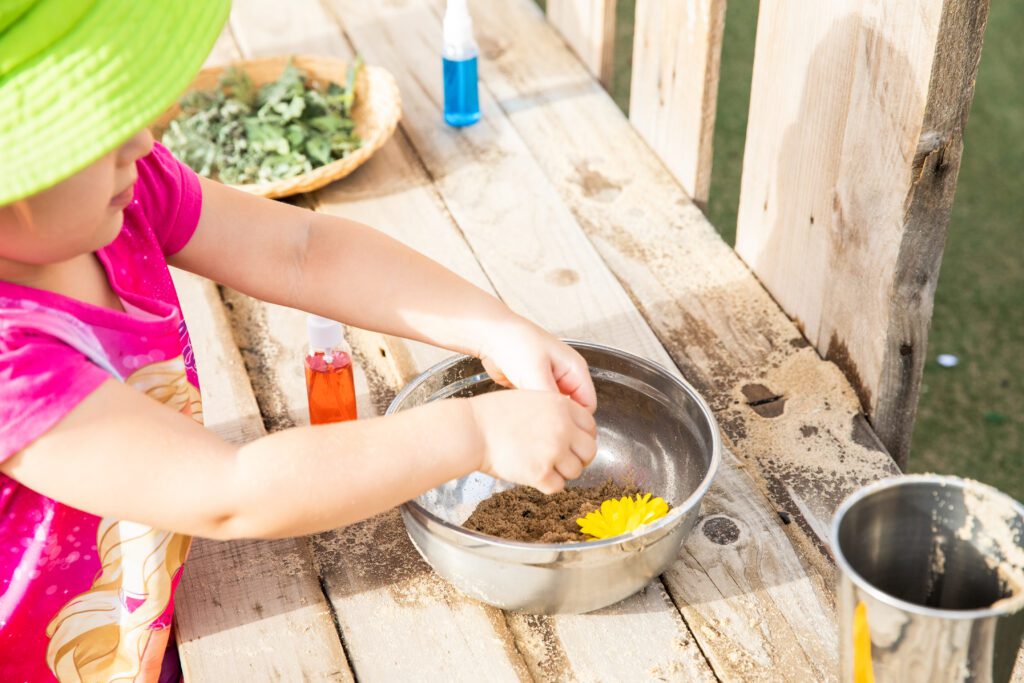
Big Learning in Small Spaces: How to Set Up a Play Nook at Home Without the Fuss (or the Cost)
If you’ve ever looked around your home and thought, “We have so many toys, but nothing’s getting played with properly,” you’re not alone.
The good news? You don’t need a toy catalogue or a perfectly curated playroom to create a space that helps your child learn, focus and grow. With just a little thought (and maybe a tidy-up), you can create a play nook that feels inviting, calming and purposeful — without spending a fortune.
At Aussie Kindies, we believe play is where the best learning happens. It’s how children make sense of the world, solve problems, build relationships and express themselves. And the kind of learning we see every day in our centres? You can encourage that same magic at home — with everyday items and a little help from the experts.
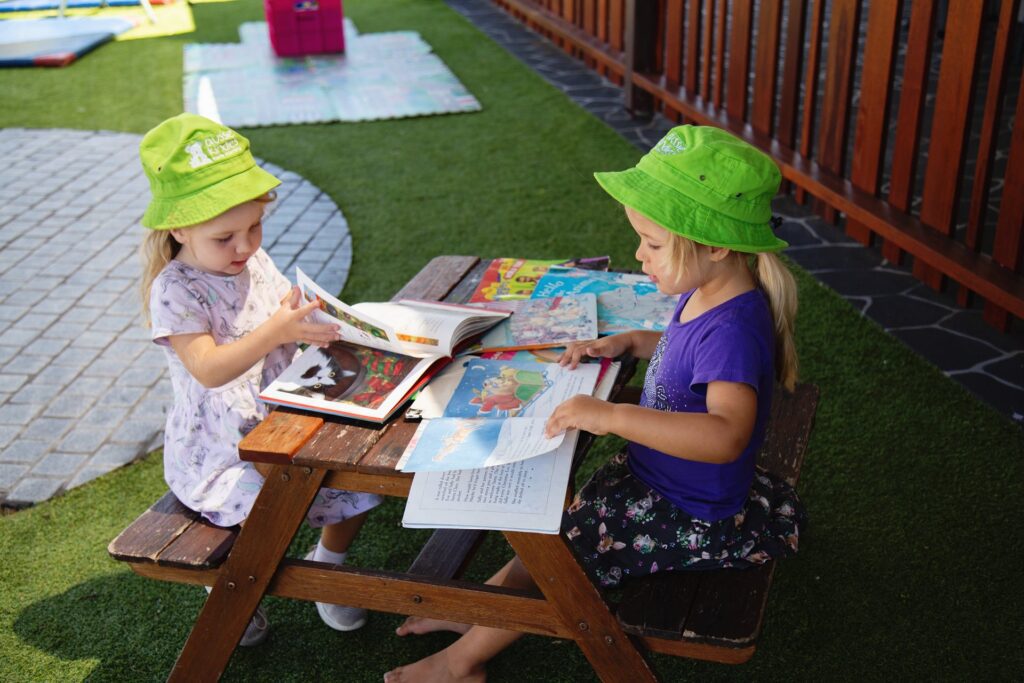
Why Reading to Your Child (Even as a Baby!) Makes a Real Difference
There’s nothing quite like cuddling up with your child and sharing a story. Whether you’re reading the same book for the third night in a row or flipping through pages with a curious baby on your lap, these small moments create lasting memories — and they do a lot more than you might think.
At Aussie Kindies Early Learning, we know that reading aloud from birth to age five supports everything from language and communication to emotional wellbeing and school readiness. And the best part? You don’t need to be a perfect reader. Just being present, talking, laughing, and turning pages together is enough.
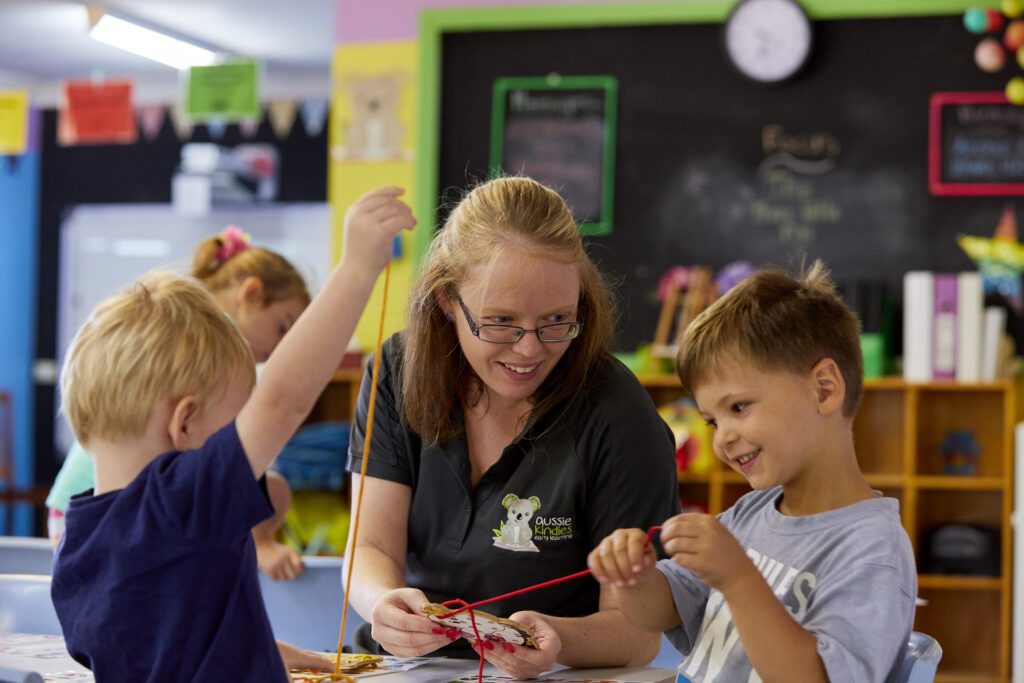
From “Uh-Oh” to “Look, Mum!”: Everyday Conversations That Help Toddlers Learn to Talk
Whether you’re chasing chickens in the backyard, popping into the local IGA, or walking past the neighbour’s tractor on the way to kindy, your toddler is listening—and learning—with every word you say.
At Aussie Kindies Early Learning, we believe that big learning doesn’t require a classroom or a lesson plan. It happens in the little moments, through simple, loving conversations. And as a parent, you’re already your child’s most important teacher.
Here’s how to support your toddler’s language development through everyday chats—and how we build on that learning at our centres using the research-backed Abecedarian 3a approach.